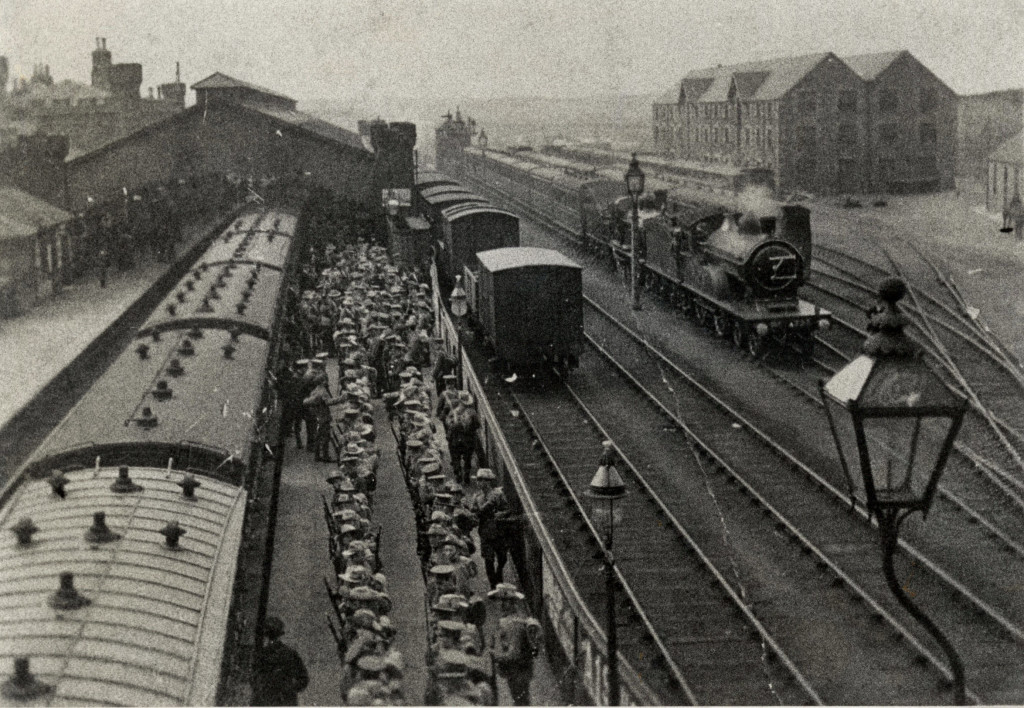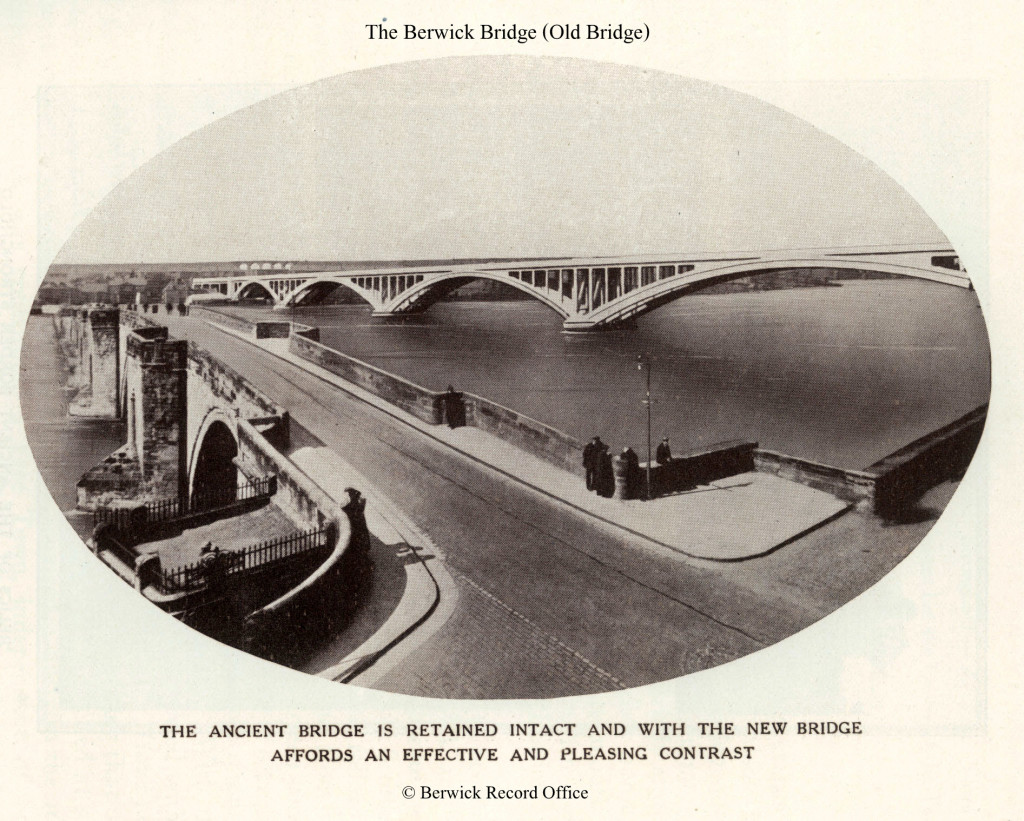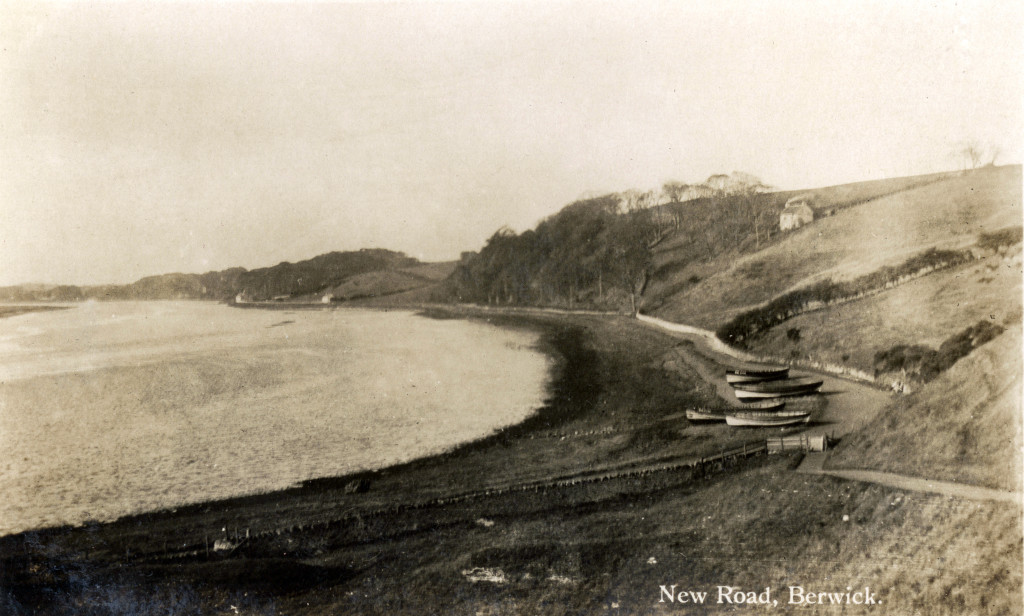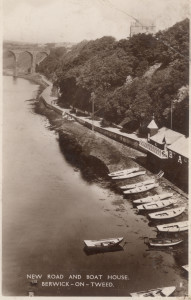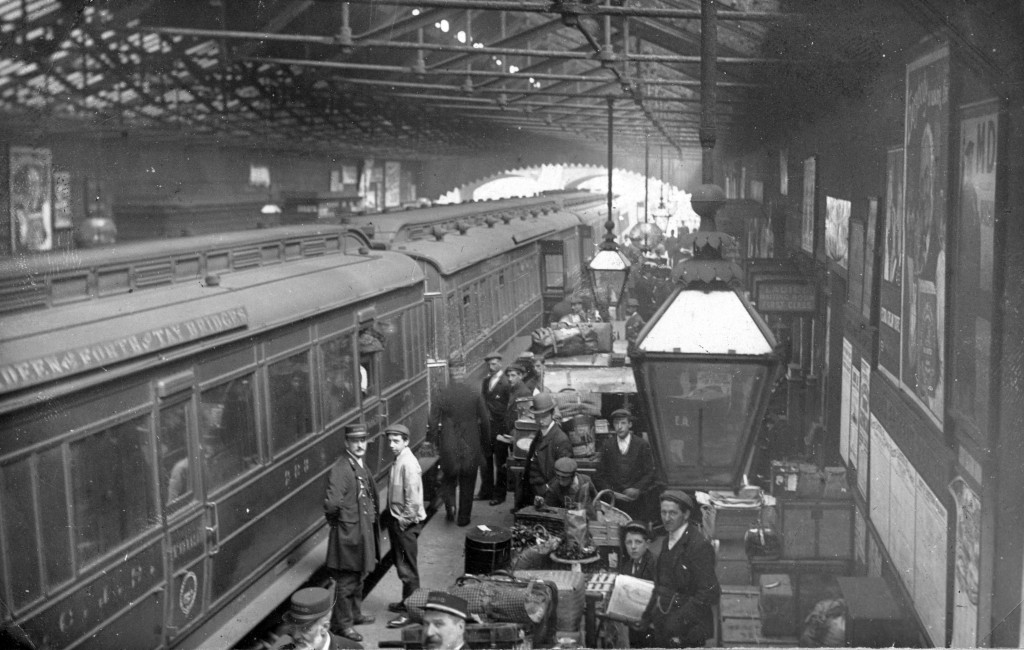BERWICK ADVERTISER, 5 NOVEMBER 1915
ETAL
The convalescent soldiers at Etal Manor Hospital have lately been giving a series of concerts at neighbouring villages in aid of the British Red Cross Society. As a result of their efforts a sum of over £23 has been realised, and the expenses being very few owing to the generosity of everyone approached, practically the whole of this sum will be available for the funds of the Society. The places visited were Ford, Crookham, Milfield, and Duddo, and the concerts were everywhere well received.
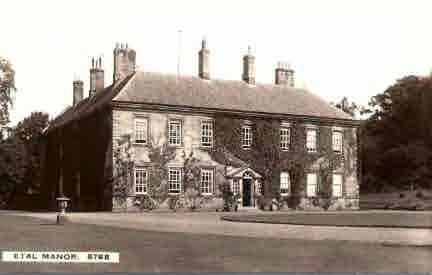
SAD ACCIDENT AT BERWICK STATION
About 2.10 a.m. on Tuesday, whilst Robert Buglas, 16 years of age, Church Street, Berwick, was following his employment as greaser at Berwick Railway Station and when near the turning table he was jumping on the footboard of a goods van in motion his foot slipped. Both his legs went under the wheels of the van. The wheels passed over his left leg above the ankle and his right foot across the heel. First aid was rendered, and he was conveyed to Berwick Infirmary, where he was attended by Drs Fraser and Maclagan, who found it necessary to amputate the injured limbs.
THE LATE MR CHRISTISON
Through the Christisons of Foulden and the Chirnsides of Cockburnspath district, Berwickshire has interesting links with pioneer days in Australia, one of the last of which
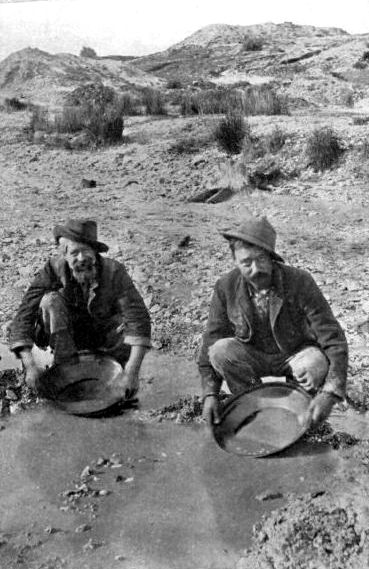
has been broken by the death of Mr Robert Christison, a nephew of Sir Robert Christison. In a recent lecture in his native village, Mr Christison related how he had met one Jimmy Nailans, who was the first Foulden post-boy, in a place named Bacchus Marsh. Mr Nailans had landed in Australia two years before. Buying a bullock team, he made money in carrying provisions for the population of 80,000 which flocked to Bendigo in the gold rush, and when Mr Christison met him he had 206 ounces of gold dust hidden in horns of cart grease. He put £2,000 into land in the outskirts of Melbourne, and thus became very wealthy. Like a good Borderer, Jimmy Nailans returned to his native soil, bought an estate, and settled there. Mr Christison, whose remains were interred last week at Foulden, was the last surviving son of Rev. Alex. Christison, for 52 years minister of the parish.
AN EXTRAORDINARY INCIDENT IN THE TRENCHES
Private Kenneth Alexander, of the 2nd Royal Scots, who has been at the Front for over a year and is at present home at Dunbar on several days’ furlough, narrates a most interesting one might almost term it exciting- incident, which occurred recently in the trench where he was quartered. The enemy’s trench but 15 yards distant, was occupied by Saxons. Several of the enemy happened to put their heads over the parapet of the trench; inquired if they were all “Jocks” in the British trench; where they came from- was it Glasgow? – and when did they arrive in France? The conversation concluded by warning the Royal Scots men in this trench to keep their heads down, as the Prussian Guards were located on their right, and consequently there were great risks of being sniped. They then held up a bottle of Cognac, and the Scotsmen inquired if they fancied a bottle of whisky. A hurriedly pencilled note attached to several newspapers was flung into the Saxons’ trench. We asked, said Private Alexander, in this letter if they could give us any part of their equipment as a souvenir of this interesting meeting between opposing forces. Very shortly afterwards a package of German newspapers, attached to which was a letter from one of these Saxons was flung into our trench, which on being translated read as follows:- “There are a few papers. Of course we cannot send you any part of our equipment over, and for the whisky we don’t care, but when you have new papers send them across and we will do the same. It is certainly interesting to read what the enemy believes to be able to tell their own folks. We threw already a few papers over, but too short. Perhaps you will find them to-night. Be careful in getting them. (signed) Yours, Fritz.” “If you please let us have a French journal- S.V.P.”
A GRAND EVENING CONCERT
Successful Venture In Aid of Berwick Branch of
Young Helpers’ League
The Queen’s Rooms was crowded in all parts on Thursday evening when a grand evening concert was held in aid of the funds of the Young Helpers League of Dr Barnardo’s Homes. The concert was excellent from start to finish and the term grand applied to it was a fitting description of the entertainment. The local Committee of the Young Helpers’ League, with Mr A. J. Dodds as President, were the originators of the idea to hold the concert. The management and carrying out of the concert was put into the hands of Miss Sissy Dodds, and according to its most excellent result the Committee could not have chosen anyone better to ensure the success of the entertainment. All secretarial work was undertaken by Miss Dodds, while Miss L. Purves and Miss J. Thompson assisted her as treasurers.
The concert realised £58, and Miss Dodds is to be warmly congratulated in that her management has been so successful.
The programme was as follows:
PART 1
Piano Duet-“Spanish Dance, “ ( Moszkowski) Miss Katherine Vincent and Mr Ernest Warrington
Songs – (a) 2 The Rebel” (b) “ Son of mine” (Wallace), ……… . Mr Ernest J. Potts
Violin Solo – “ Gipsy Dance,” ( Sarasate) Mr Ernest Sharp
( Encore)
Recital – “A Question of Identitiy” ( an excerpt from “Comedy and Tragedy”), by W.S. Gilbert………………Mr Hugh Miller.
(Encore – “Mon Ami.”)
Songs – (a) “ Rose in the bud” ( Forster) (b) “Until,” (Sanderson), Miss Katherine Vincent
(Encore – “Waltz Song.”)
Humorous Sketch – “Curates” (Warrington), Mr Ernest Warrington.
(Encore)
PART 11
Duet – “Awake,” (Pellissier), Miss Katherine Vincent and Mr Ernest J. Potts.
Violin Solo – “Valse Caprice” (Wieniawski), Mr Ernest Sharp
(Encore)
Song – “Galloping Dick” (Fletcher), Mr Ernest J.Potts
(Encore – “Go to sea my lad.”)
Recital – “Gunga Din” ( by Rudyard Kipling), Mr Hugh Miller
(Encore – “Once more into the breach, once more,” from King Henry V., Act 2 and 4).
Songs – (a) “A fat I’il feller wid his mammy’s eyes, “ ( Gordon) (b) “Sincerity” ( Clarke), Miss Katherine Vincent.
(Encore – “Caller Herrin’.”)
Humorous Songs – Selected Dialects,. Mr Ernest Warrington.
(Encore.)
Interval for Soldiers’ Sing-Song.
Sketch – “The Peacemaker,” a comedy in one act, by E. M. Bryant.
Characters:-
Elizabeth Lavender Mrs Waldron
Joyce Harford Miss Sissy Dodds
Dr Burton Mr G. P. Boyd
Richard Harford Rev. J.R. Bentley
Parsons Miss Katie Mackay
Scene – Elizabeth Lavender’s Flat in Kensington.
GOD SAVE THE KING


